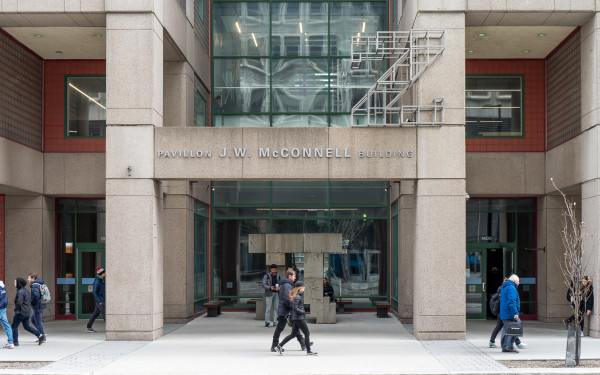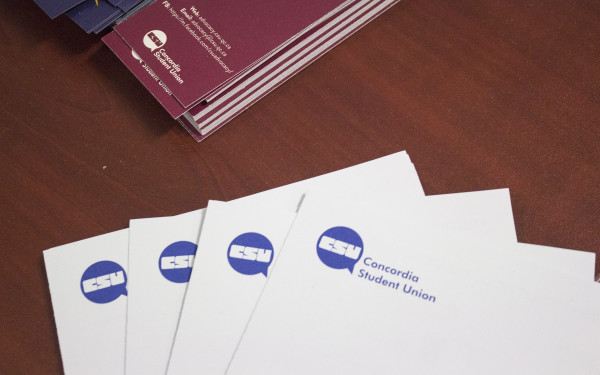Breaking: CSU councillor seeks to defund student media orgs
The Link, CJLO targeted in proposed referendum questions
Concordia Student Union councillor Tzvi Hersh Filler will present two proposed referendum questions targeting Concordia student media organizations, including The Link, at the Oct. 14 council meeting.
The questions, which also take aim at campus radio station CJLO, propose eliminating the fee levies the organizations depend on to operate.
The proposals will be circulated as petitions and therefore will not be up for approval at the meeting, according to CSU chair Caitlin Robinson. A petition garnering the signatures of 750 undergraduates is a necessary step, not yet completed, in the process of eliminating a fee levy.
According to Article 259 of the CSU Standing Regulations, such a petition would have needed to be submitted by the last Monday of September to be considered for the fall by-election. This seems to indicate the referendum questions are intended for the general elections in winter, even though council is currently considering fall questions.
Filler’s first question accuses The Link of running smear campaigns against proponents of online opt-out. Filler, a vocal supporter of online opt-out, was recently the subject of a Link article detailing his objection to a committee diversity motion.
The second question reads, “CJLO is attempting to sue the CSU to prevent online opt out, do you support removing CJLO’s fee levy?”
CJLO threatened an injunction against the student union in May, due in part to a consultation process it characterized as inadequate. The referendum that approved online opt-out in fall 2019 had mandated that a new system would be created in consultation with all fee-levy groups.
The Link has published several articles about online opt-out, a flagship policy initiative of the previous CSU executive team led by former general coordinator Christopher Kalafatidis. When the question was successfully put to a referendum last fall, the language did not outline the specifics of such a system. Council voted in June to ask the university to implement a centralized system rather than entertain an alternative proposed by fee-levy groups.
The vote succeeded by a margin of one, reflecting the divisive journey of the policy to this point. Kalafatidis, who became a councillor following his term as general coordinator, resigned in August.
Fee-levy groups receive small per-credit fees from students and in exchange provide student life opportunities and other support. Students have always had the right to opt out of these fees, but in the past students had to opt out in person, giving fee-levy groups a chance to share information about their services.
This article has been updated for clarity and to provide more context about the timing of the move.






